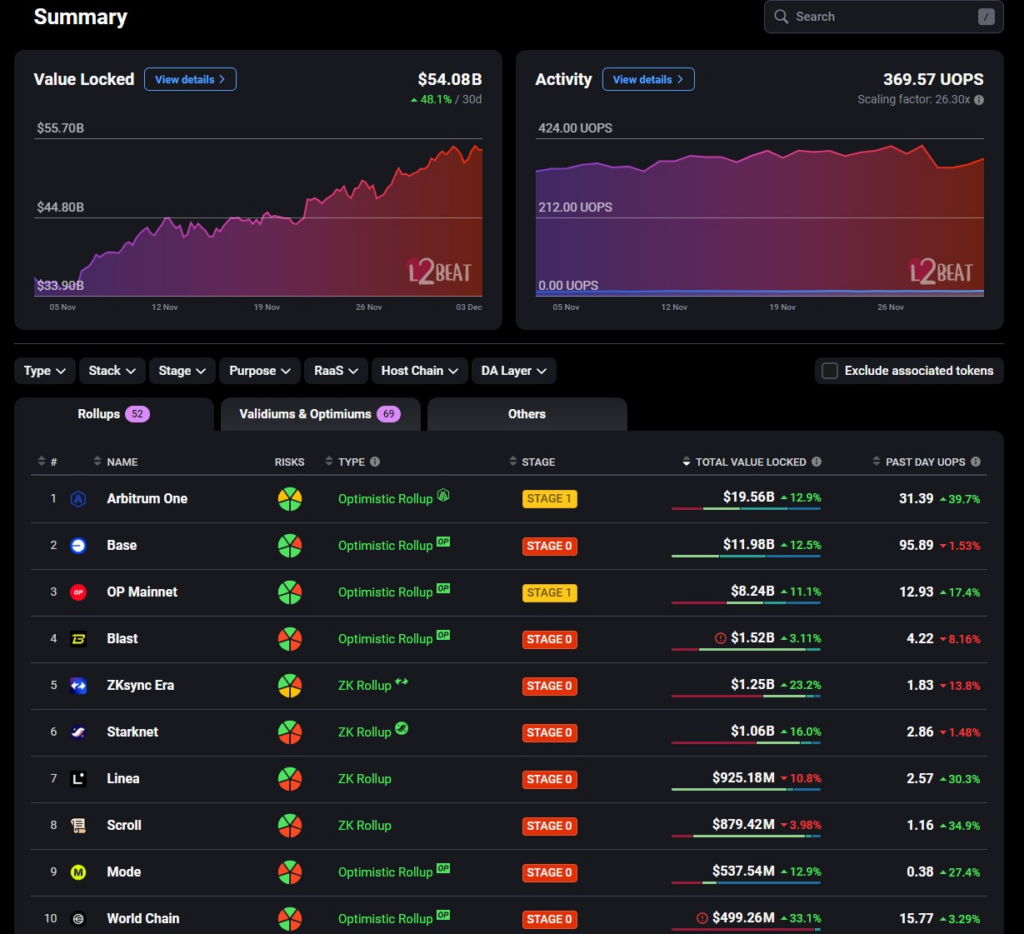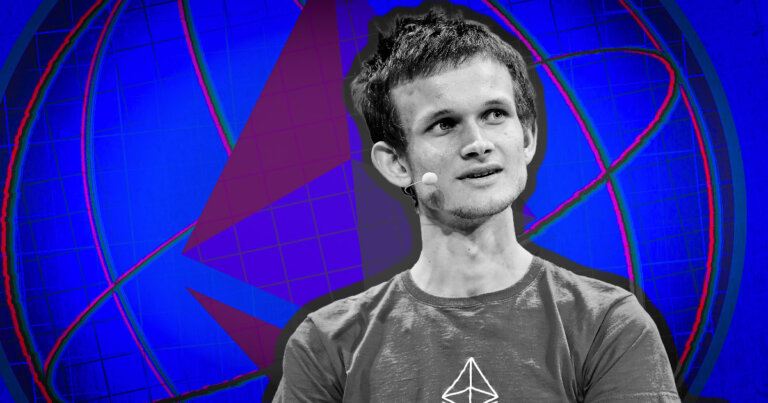Vitalik Buterin urges Web3 wallets to enhance security, privacy, and seamless transfers across Ethereum’s layer-2 networks for a more user-friendly ecosystem.
Additionally, the Ethereum co-founder suggested modifications to facilitate transfers between layer-2 scaling networks.
In a blog post published on December 3, Ethereum co-founder Vitalik Buterin urged Web3 wallet developers to incorporate features that enhance security and privacy.
Buterin stated in the blog post that “[A] user only benefits from any decentralization, censorship resistance, security, privacy, or other properties that Ethereum and its applications offer to the extent that the wallet itself also has these properties.”
Additionally, he suggested methods to facilitate transfers between Ethereum’s layer-2 (L2) scaling networks, including Arbitrum and Optimism.
According to data from L2Beat, Ethereum is home to hundreds of L2 scaling networks that handle over $50 billion in total value locked (TVL) between them.

Web3 wallet to Improve security and privacy
Instead of restricting privacy to a small number of specialized wallets, Web3 developers should incorporate privacy features into all wallets, according to Vitalik Buterin.
He clarified, “Up until now, users have had to explicitly download and use a ‘privacy wallet’ to make private transfers on Ethereum.”
“This adds great inconvenience and reduces the number of people who are willing to make private transfers. The solution is that private transfers need to be integrated directly into wallets.”
According to him, a wallet could accomplish this by “storing some portion of a user’s assets as a ‘private balance, in a privacy pool,'” which it would then use to finance transactions.
A US court decided in Tornado Cash’s favor on November 26, stating that the US Treasury Department had gone too far in approving the privacy standard. More onchain privacy features might be made possible by this.
For further protection, Buterin suggested that all Web3 wallets incorporate multisignature authorization, which requires multiple signers to approve transactions.

Transfers across L2
Buterin also asked Web3 wallet developers to include functionality that makes transfers between L2 networks easier, such as transmitting tokens straight to a user’s wallet on a different L2.
About the Optimism L2 suffix added to the wallet address, Buterin stated, “Your wallet should be able to give you an address that (following the style of this draft ERC) looks like this: 0xd8dA6BF26964aF9D7eEd9e03E53415D37aA96045@optimism.eth.”
You should be able to paste an address of this format into the “to” field of a wallet and click “send” when someone (or an application) provides it to you. According to him, the wallet needs to handle that transfer automatically in any manner it can.
Buterin, urging Web3 developers to accelerate layer-2 decentralization since September, has stated that he will only recognize scaling solutions at “stage 1” of his decentralization scale.
Buterin stated in an X post on September 12 that he takes this “seriously” and only intends to openly discuss layer-2 networks with an operational fraud-proof or validity-proof system in 2025.
